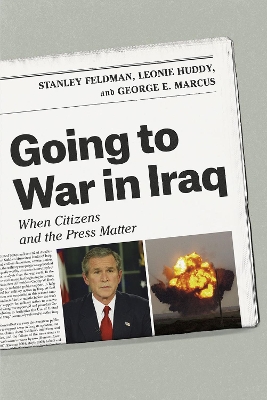How was the Bush administration able to convince both Congress and the American public to support the plan to go to war against Iraq in spite of poorly supported claims about the danger Saddam Hussein posed? Conventional wisdom holds that, because neither party voiced strong opposition, the press in turn failed to adequately scrutinize the administration's arguments, and public opinion passively followed. Drawing on the most comprehensive survey of public reactions to the war, Stanley Feldman, Leonie Huddy, and George E. Marcus revisit this critical period and come back with a different story. Not only did the Bush administration's carefully orchestrated campaign fail to raise Republican support for the war, opposition by Democrats and political independents actually increased with exposure to the news. But how we get our news matters: People who read the newspaper were more likely to engage critically with what was coming out of Washington, especially when exposed to the sort of high-quality investigative journalism still being written at traditional newspapers-and in short supply across other forms of media.
Making a case for the crucial role of a press that lives up to the best norms and practices of print journalism, the book lays bare what is at stake for the functioning of democracy-especially in times of crisis-as newspapers increasingly become an endangered species.
- ISBN10 022630423X
- ISBN13 9780226304236
- Publish Date 15 October 2015 (first published 22 September 2015)
- Publish Status Active
- Publish Country US
- Imprint University of Chicago Press
- Format Paperback
- Pages 248
- Language English
- URL http://wiley.com/remtitle.cgi?isbn=9780226304236
